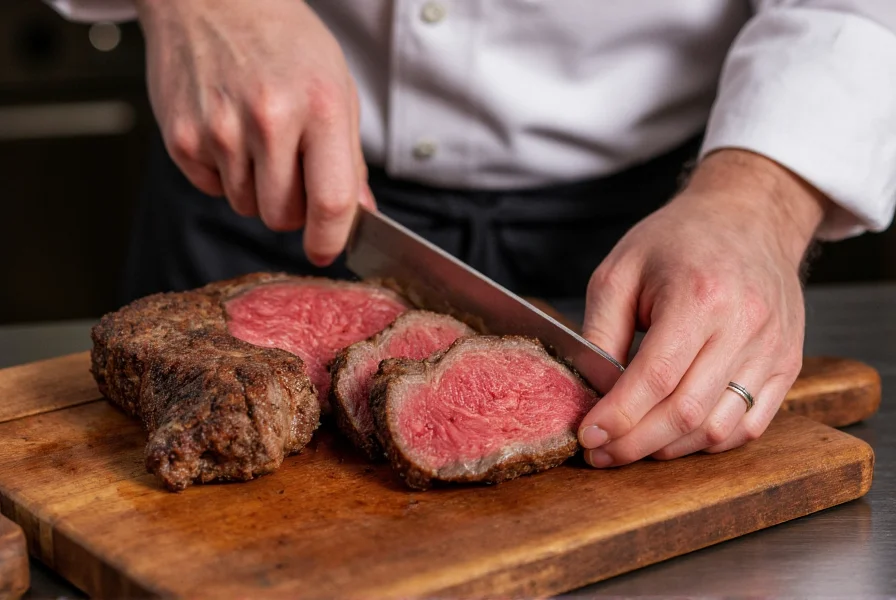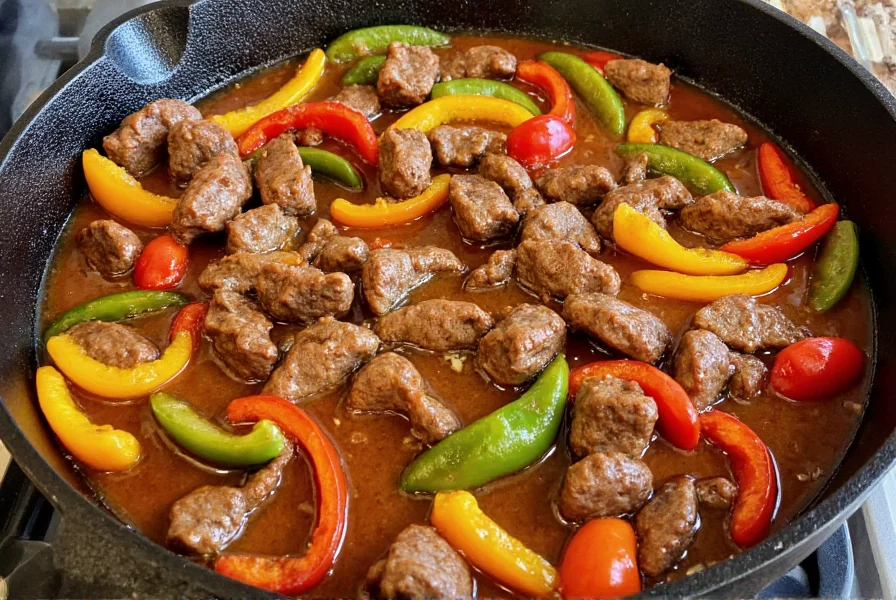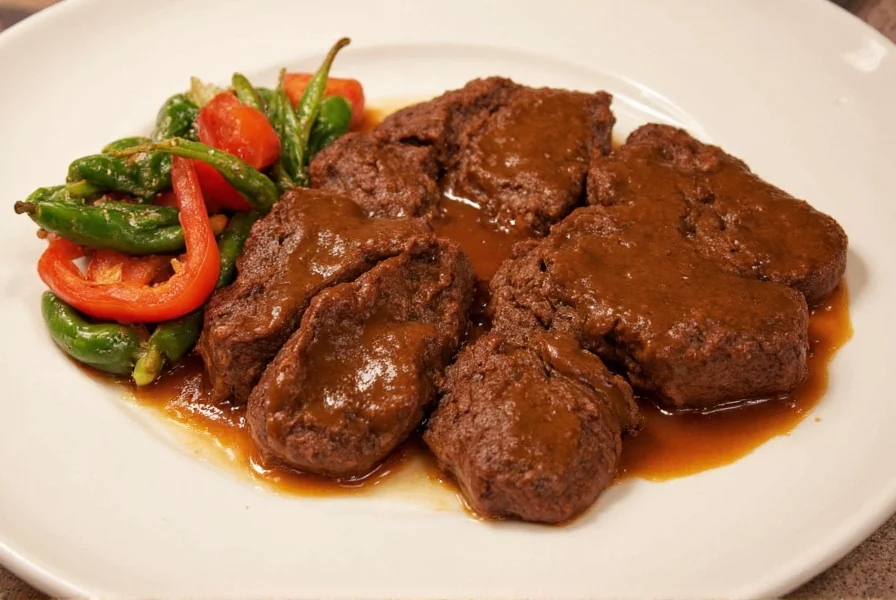Creating the perfect pepper steak starts with selecting the right cut of beef and understanding the cooking techniques that transform simple ingredients into a flavorful meal. This guide provides professional insights for making exceptional pepper steak that rivals your favorite restaurant's version.
Understanding Beef Selection for Pepper Steak
Not all beef cuts perform equally in pepper steak preparation. The ideal cuts balance tenderness with enough marbling to withstand high-heat cooking without becoming tough.
| Beef Cut | Texture Characteristics | Best Preparation Method | Recommended Cooking Time |
|---|---|---|---|
| Flank Steak | Firm texture with visible grain | Slice thinly against the grain (1/4 inch) | 2-3 minutes per side |
| Sirloin (Top Blade) | Moderately tender with good marbling | Slice diagonally across grain | 3-4 minutes total |
| Flat Iron Steak | Exceptionally tender with uniform texture | Slice against grain at 45-degree angle | 2-3 minutes total |
| Ribeye | Rich marbling, tender but expensive | Slice against grain, trim excess fat | 3-4 minutes total |
Essential Preparation Techniques
The difference between tough, chewy pepper steak and tender, restaurant-quality results comes down to proper preparation:
Proper Slicing Method
Always slice your beef against the grain at a 45-degree angle. This technique shortens the muscle fibers, creating naturally more tender pieces. For flank steak, which has a pronounced grain, this step is particularly crucial for achieving the right texture in your homemade pepper steak recipe.
Effective Marinating Process
A simple but effective marinade enhances both flavor and tenderness:
- 2 tablespoons soy sauce
- 1 tablespoon rice wine or dry sherry
- 1 teaspoon cornstarch
- 1 teaspoon sesame oil
- 1/4 teaspoon baking soda (optional, for extra tenderness)
Marinate the sliced beef for 20-30 minutes at room temperature. Avoid longer marinating times as the baking soda can create an undesirable texture if left too long.

Perfect Cooking Method for Pepper Steak
Mastering the cooking technique ensures your pepper steak turns out perfectly every time:
Wok or Skillet Preparation
Use a carbon steel wok or heavy-bottomed skillet heated to proper temperature before adding ingredients. The surface should be hot enough that a drop of water sizzles and evaporates immediately.
Stir-Frying Sequence
- Heat 1-2 tablespoons of high-smoke point oil (peanut or avocado) until shimmering
- Cook beef in a single layer without overcrowding (work in batches if necessary)
- Remove beef after 90 seconds when lightly browned but still rare inside
- Stir-fry peppers and onions until crisp-tender (2-3 minutes)
- Return beef to pan, add sauce, and toss until glossy and well-coated (30-60 seconds)
Creating the Ideal Pepper Steak Sauce
The sauce makes or breaks your pepper steak. A balanced sauce should have:
- Umami depth from soy sauce and oyster sauce
- Subtle sweetness to balance the savory elements
- Just enough thickness to cling to the ingredients
- A hint of garlic and ginger for aromatic complexity
For a classic pepper steak sauce, combine:
- 3 tablespoons beef broth or stock
- 2 tablespoons soy sauce
- 1 tablespoon oyster sauce
- 1 teaspoon brown sugar
- 1 teaspoon cornstarch
- 1 clove garlic, minced
- 1/2 teaspoon fresh ginger, grated
- 1/4 teaspoon black pepper

Avoiding Common Pepper Steak Mistakes
Even experienced home cooks make these frequent errors when preparing pepper steak:
Overcrowding the Pan
Adding too much beef at once lowers the pan temperature, causing the meat to steam rather than sear. Cook in batches for proper browning, which develops essential flavor through the Maillard reaction.
Using Wet Ingredients
Ensure your sliced beef is patted dry before marinating. Excess moisture prevents proper searing and creates steam instead of the desired caramelization.
Overcooking the Beef
Pepper steak beef should be cooked quickly over high heat. The beef continues to cook from residual heat after removal from the pan, so remove it when still slightly underdone to achieve perfect medium-rare doneness.
Variations for Different Pepper Steak Preferences
While traditional pepper steak uses bell peppers, you can customize your dish based on regional styles:
Chinese-American Style
Features a thicker, slightly sweet sauce with bamboo shoots and water chestnuts for added texture. Often served over white rice with a side of steamed vegetables.
Szechuan Variation
Adds dried red chilies and Szechuan peppercorns for a distinctive numbing heat. The sauce incorporates chili bean paste for deeper flavor complexity.
Modern Health-Conscious Version
Uses reduced-sodium soy sauce, increases vegetable ratio, and incorporates leaner cuts like top round. Some versions substitute arrowroot for cornstarch for a paleo-friendly option.
Serving and Storage Recommendations
Pepper steak is best served immediately after preparation when the beef is most tender and the vegetables retain their crisp texture. Pair with:
- Steamed jasmine rice
- Fresh cucumber salad
- Light vegetable stir-fry
For leftovers, store in an airtight container in the refrigerator for up to 3 days. Reheat gently in a skillet with a splash of water or broth to restore moisture. Avoid microwaving, which can make the beef tough and rubbery.











 浙公网安备
33010002000092号
浙公网安备
33010002000092号 浙B2-20120091-4
浙B2-20120091-4